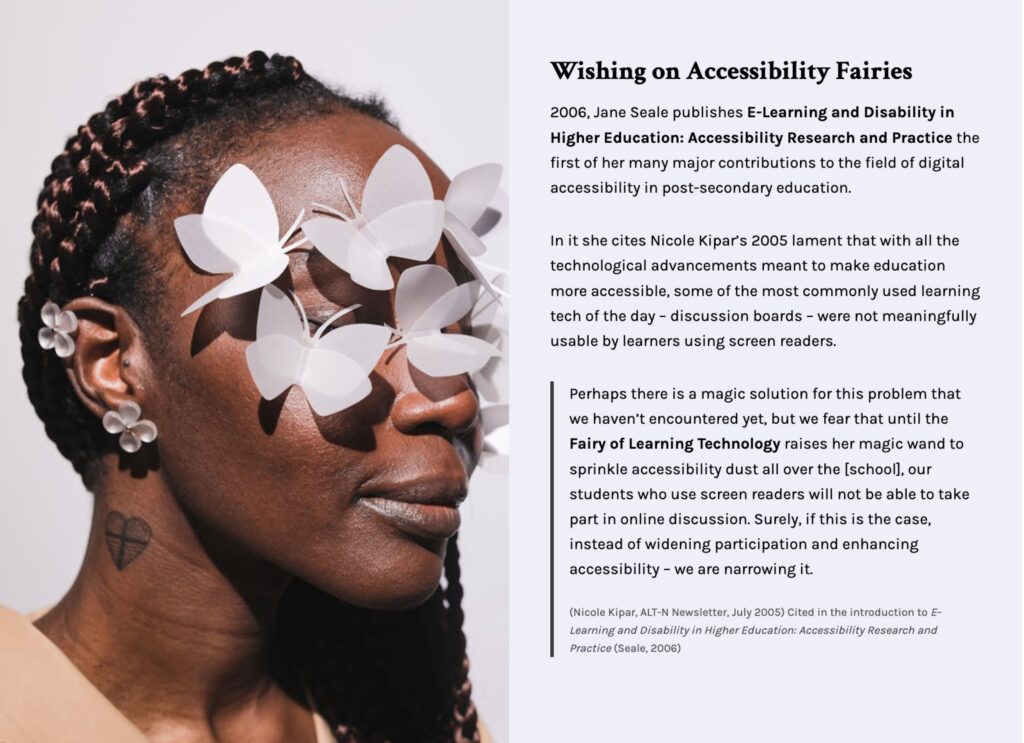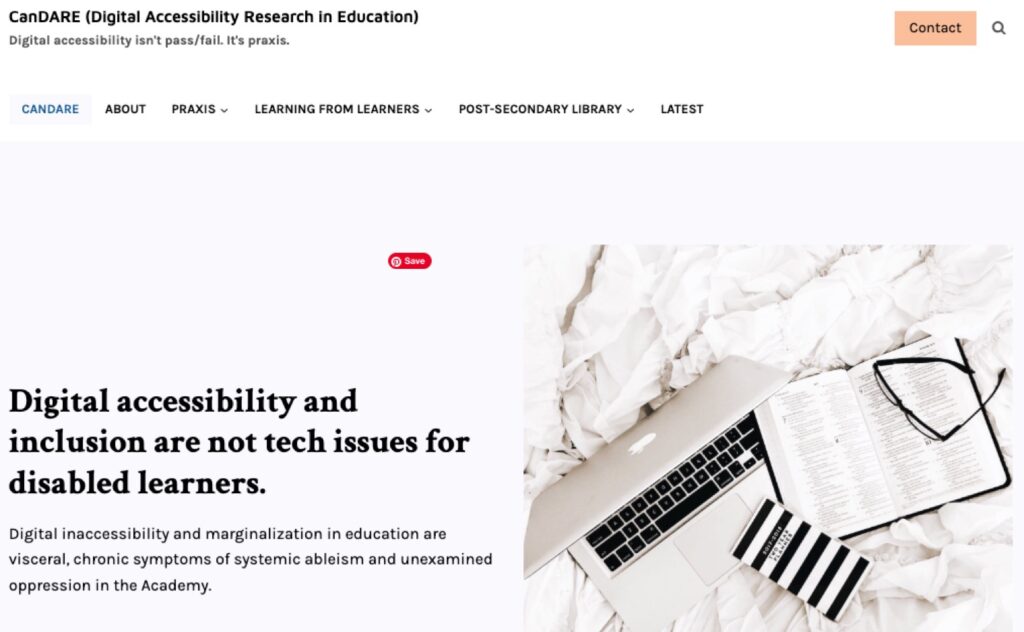By Kim Ashbourne, graduate student, University of Victoria
As educators and researchers, we have opportunities every day to improve digital access and inclusion for learners with disabilities: in our classrooms, our research studies, our conferences, and the digital commons. Yet many gaps exist in the supports for educators and researchers to make the kinds of changes to our digital praxis that can make meaningful change.
CanDARE (Digital Accessibility Research in Education) Fills a Gap
With the support of the BCcampus Student Research Fellows Program, I built the CanDARE website to share research that helps educators understand and engage with:
- Learners’ visceral experiences of digital inaccessibility, including my own, so that we might begin to see some of the effects our digital practices.
- Some of the sociocultural challenges faced by assistive technology users in social learning environments and the unseen ableism in taken-for-granted digital practices.
- Critical, transformative research and digital praxis interventions.
The CanDARE website shares research products from myh own transformative research project, which is supervised by Michael Paskevicius at the University of Victoria. The site’s library also shares annotated bibliography posts and links to published research, which amplifies the voices of authors working in this space. The site will continue to share content that puts digital accessibility praxis considerations in conversation with pedagogical scholars, such as Paulo Freire and bell hooks, as well as cultural theorists and cultural producers, such as Sarah Ahmed, Sins Invalid, Alice Sheppard, Leah Lakshmi Piepzna-Samarasinha, and Eli Clare, to explore digital accessibility and inclusion through a critical, transformative, and disability justice-informed lens.
Sign up for CanDARE project updates to find resources and to stay connected with my research.
- Get updates about transformative digital accessibility and inclusion resources, discussions, and events for post-secondary educators.
- Receive academic activists’ tools to advocate for digital accessibility and inclusion.
- Want to collaborate on research or workshops? Let’s talk about how we CanDARE together.
My BCcampus Fellowship Experience
Two months after being awarded a BCcampus fellowship for my graduate research, my own experience with disability became more profound and complex. I thought I would have to give up the fellowship because I physically could not conduct the research I had proposed. With encouragement from the good people at BCcampus, I decided that even though my abilities were not what they were when I applied, I could dare to reimagine my contribution to digital accessibility research in education. Knowing I’m far from alone, I conceived of this website to showcase how we–a community of learners, researchers, and educators–can dare to make fundamental and transformative improvements to digital accessibility in education. Finally, I want to acknowledge the learners, scholars, and loved ones with disabilities, and those whose intersectional, racialized, and Indigenous anti-oppression teachings informed the flexibility and respect for multiple ways of researching and knowledge-sharing embraced by BCcampus. I am very grateful and offer this research in return, in the spirit of forming liberatory, joyful, and transformative connections, digital and otherwise.
This research is supported by the BCcampus Student Research Fellows Program. The program provides B.C. post-secondary educators and students with funding to conduct small-scale research on teaching and learning, as well as explore evidence-based teaching practices that focus on student success and learning.


